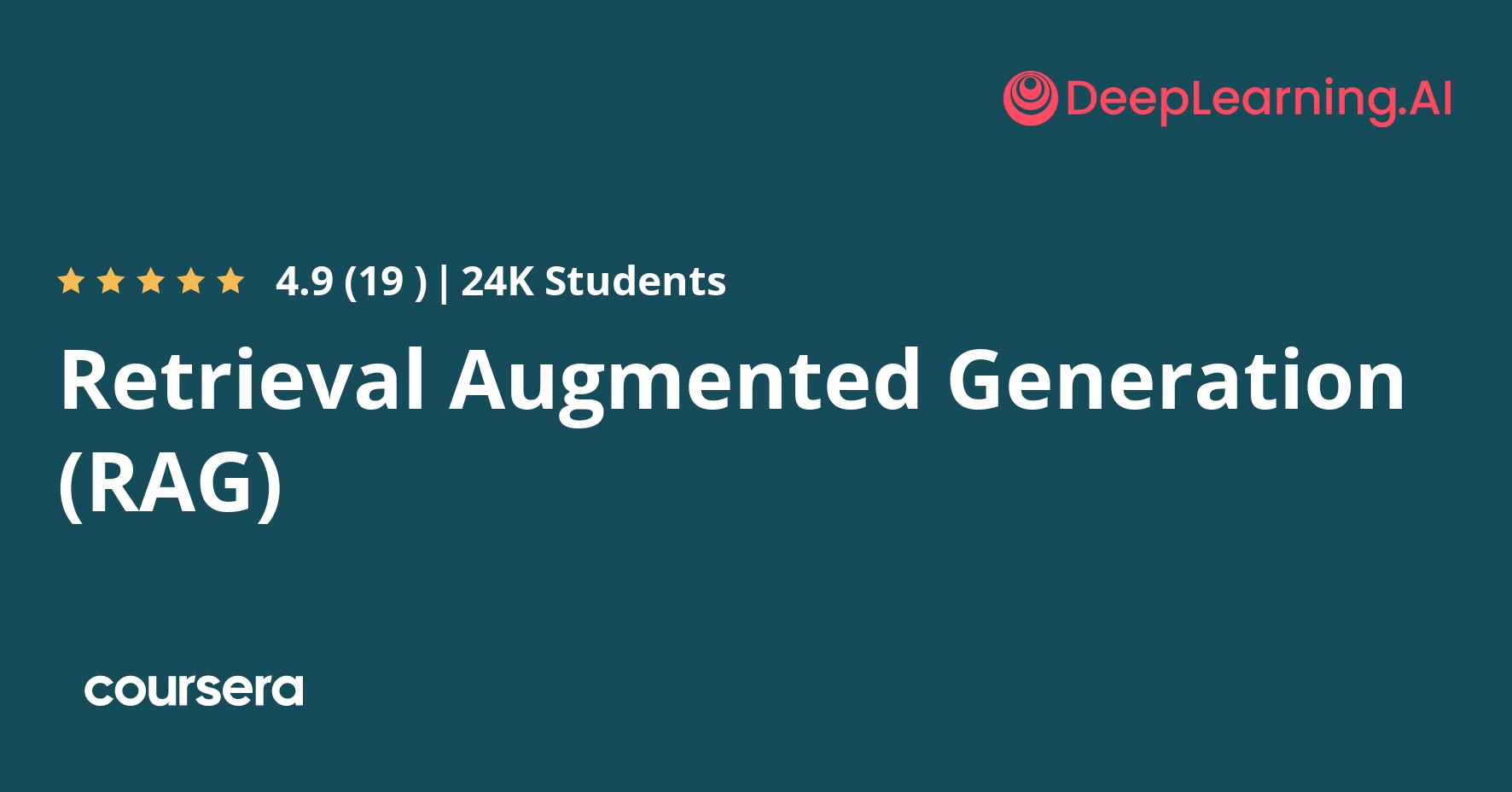Description
Unlocking the Power of RAG: A Deep Dive into Coursera’s Certificate in Retrieval-Augmented Generation (RAG)
As generative AI continues to transform industries, Retrieval-Augmented Generation (RAG) stands out as a pivotal innovation—combining the generative capabilities of LLMs with real-time, accurate data retrieval. Coursera’s Retrieval-Augmented Generation (RAG) certificate, recently updated in July 2025, offers a comprehensive and hands-on learning path for professionals eager to master this burgeoning field.
What Makes This Course Worthwhile
1. Real-World RAG System Design
Learners delve into the full RAG pipeline—from constructing retrievers and integrating vector databases to designing prompt augmentation for LLMs. The course emphasizes balancing cost, speed, and quality—a critical triad in production-ready RAG architecture.
2. Skills Acquisition
The course imparts a breadth of skills, including:
- Generative AI & Large Language Modeling
- Information Management & Database Systems
- Natural Language Processing & Prompt Engineering
- System Monitoring & Application Security
These competencies offer a strong foundation for RAG application development and deployment.
3. Practical, Hands-On Learning
Through five modules and multiple programming assignments, learners gain firsthand experience:
- Building retrieval and prompt augmentation functions that feed structured input into an LLM
- Comparing retrieval methods like semantic search, BM25, and Reciprocal Rank Fusion
- Scaling with Weaviate and real-world news datasets (chunking, indexing, retrieval)
- Creating a domain-specific chatbot (e-commerce FAQs and product suggestions)
- Enhancing reliability via dynamic pricing handling, interaction logging, and debugging
These labs simulate real-world challenges, fostering a practical skill set ready for immediate application.
⏱ Course Structure & Commitment
- Duration: ~3 weeks, ~10 hours per week
- Level: Intermediate—Python proficiency required; familiarity with generative AI and high school math helpful
- Format: Flexible schedule, taught in English, with video lectures, readings, assignments, and labs
- Certification: Earn a shareable certificate to showcase on LinkedIn or in your resume
Why RAG Matters
Retrieval-augmented generation dramatically enhances LLM outputs by providing external, timely, and domain-specific knowledge—thus reducing hallucinations and increasing factual accuracy. By retrieving relevant information before generation, RAG ensures more grounded and verifiable responses.
Benefits include:
- Up-to-date outputs: LLMs tap into fresh data without expensive retraining cycles.
- Transparency: Users can trace responses back to source documents—critical in high-stakes domains.
- Production efficiency: Optimized pipelines improve performance without bloated infrastructure.
Positioning & Community Resonance
The program is led by Zain Hasan and hosted by DeepLearning.AI, a platform known for its rigorous and industry-relevant AI curriculum.
With over 31,000 learners enrolled and a 4.8/5 rating (from 64 reviews), the course clearly resonates with professionals seeking immediate, hands-on RAG knowledge.
How It Compares to Other RAG Offerings
While Coursera’s RAG course is highly focused and practical, other programs offer varying depths and approaches:
- Master RAG Systems features advanced topics like query expansion and Dense Passage Retrieval.
- RAG for Generative AI Applications Specialization (IBM) spans four courses covering LangChain, LlamaIndex, FAISS, Chroma, and application-building with Python and Gradio.
- DeepLearning.AI’s course remains core for foundational hands-on understanding and execution.
Why You Should Consider It
- Focused and applied: Emphasis on over-the-shoulder coding, real tools (Weaviate), and system design.
- Career-ready: Certification and skills that translate into tangible value in AI engineering roles.
- Adaptable Foundation: A strong base to build upon with advanced RAG architectures or commercial frameworks.
Tips for Getting the Most from the Course
- Strengthen your Python and AI fundamentals—particularly around LLM usage and prompt design.
- Engage deeply with labs—they simulate real-world system design more accurately than theoretical work.
- Examine open-source RAG frameworks (LangChain, LlamaIndex, Weaviate) to solidify your tooling knowledge.
- Extend your learning—use community discussions, research papers, or benchmarks to stay updated in this fast-moving domain.




